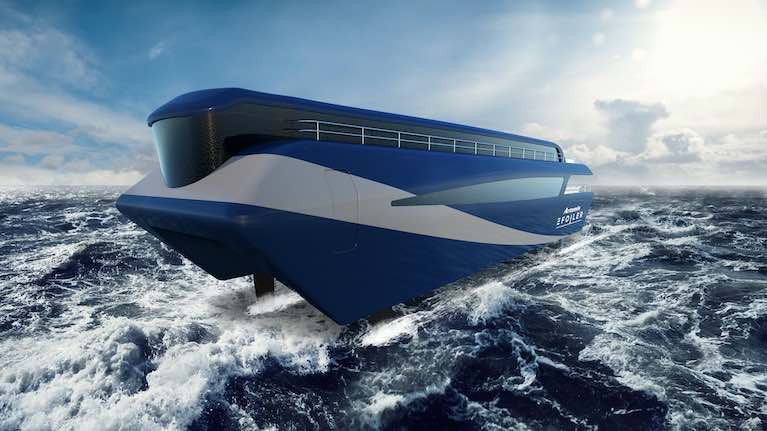Artemis Technologies has won the prestigious Maritime 2050 accolade at this year’s Maritime UK Awards.
The award, sponsored by the Department of Transport, recognises the firm’s efforts to capitalise on the opportunities presented within the Government’s Maritime 2050 Strategy.
Founded in 2017, Artemis Technologies, led by double Olympic sailing gold medallist Dr Iain Percy OBE has a mission to lead the decarbonisation of the maritime sector through innovative and sustainable technologies and products.
It is the lead partner in the Belfast Lough Maritime Consortium which aims to design and build zero-emission high-speed ferries in the city by creating a unique electric hydrofoiling propulsion system that will revolutionise the industry.

David Tyler, Commercial Director, who accepted the award commented: “We are extremely proud to have received the Maritime 2050 Award as we continue to work towards developing our transformative electric hydrofoiling propulsion system, the Artemis eFoilerTM that will power green vessels of the future.
“With a recent report from the International Maritime Organisation (IMO) indicating that approximately 30% of ship emissions come from domestic voyages – twice as high as previously estimated, it is clear the type of vessels we will develop will play a major part in cutting the release of CO2.
“We are proud that our efforts have been recognised and we appreciate the support and confidence invested in us so far.
“Huge congratulations go out to all of this year’s category finalists and winners.”
The vessels to be developed in Belfast, capable of carrying up to 350 passengers, will require 90 per cent less energy than traditional ferries and produce zero emissions during operation.
It is estimated the project will prevent 77 million cubic metres of CO2 emissions by 2026, helping the UK reach a number of its net zero objectives and realise ambitions set out in the Maritime 2050 Strategy’s Clean Maritime Plan.
































































